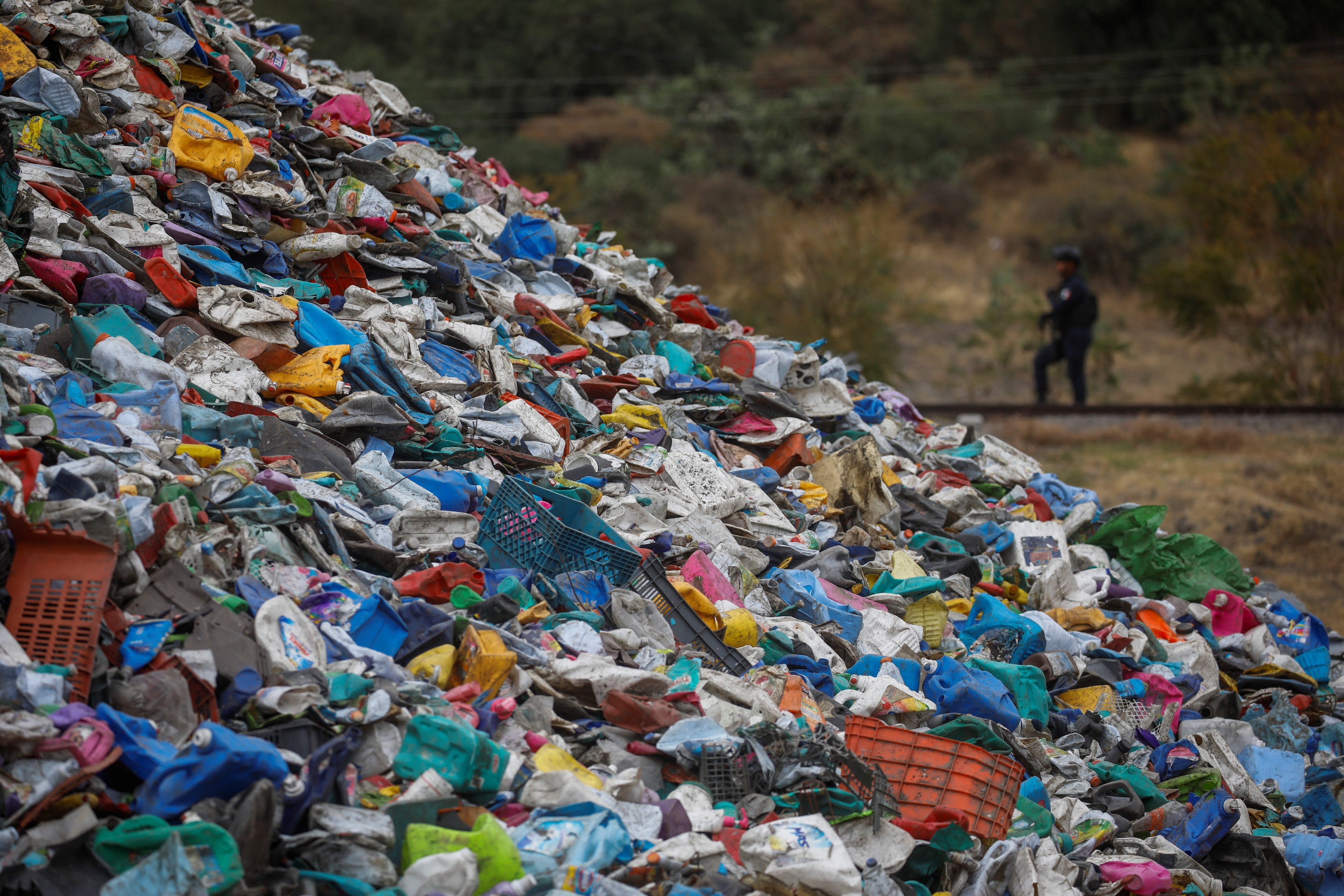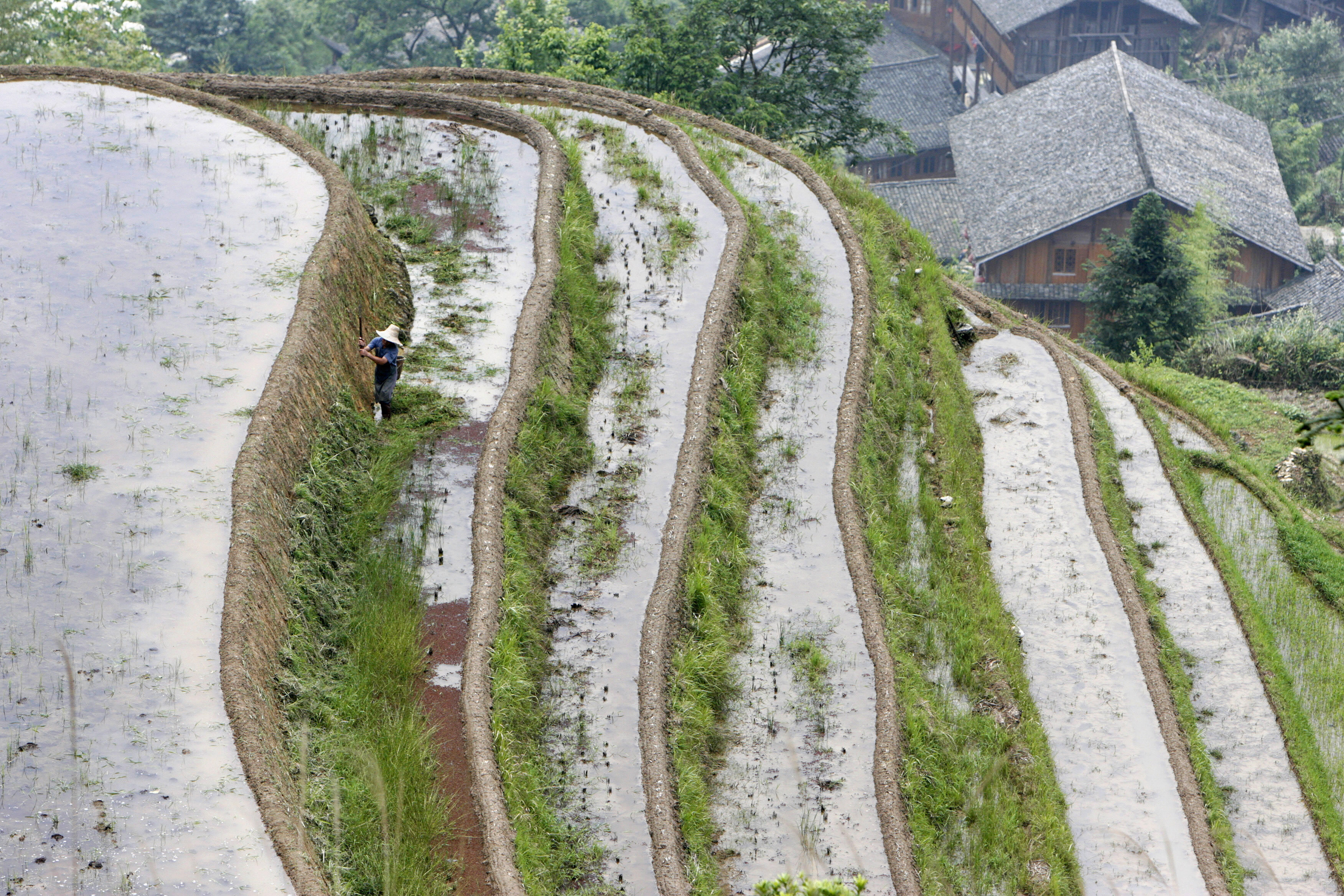This is Asia's largest urban rooftop farm

Urban agriculture could be critical with two thirds of the world's population forecast to live in cities by 2050
Image: Landprocess
Stay up to date:
Future of the Environment
- Bangkok is forecast by climate experts to sink by more than 1 centimetre annually
- The rooftop farm at Thammasat University in Rangsit is open to anyone who wishes to grow rice, vegetables and herbs
Bangkok's Thammasat University, one of the oldest in Thailand, has a new claim to fame: Asia's largest urban rooftop farm.
The 7,000 sq mt (75,000 sq ft) space mimics rice terraces in northern Thailand and can help curb some of the impacts of climate change, such as frequent flooding, said Kotchakorn Voraakhom, the landscape architect behind the project.
"We tend to make a distinction between buildings and green spaces but green spaces can be part of building design in cities like Bangkok, which has few green spaces," said Kotchakorn, the chief executive and founder of Landprocess.
"Rooftops are usually under utilised but they can be green spaces that reduce the urban heat-island effect, the environmental impacts of buildings and land use, and also feed people," she said ahead of the farm's opening.
Bangkok, built on the floodplains of the Chao Phraya River, is forecast by climate experts to sink by more than 1 centimetre (0.4 inches) annually and become one of the urban areas to be hit hardest by extreme weather conditions in the coming years.
Nearly 40% of the Thai capital may become flooded each year by 2030 due to more intense rainfall, according to the World Bank estimates.
Flooding in many parts of Bangkok is already common during the annual monsoon. The rains in 2011 brought the worst floods in decades, putting a fifth of the city under water.
It was after that disaster that Kotchakorn began thinking more about climate-resilient green spaces.
She recently designed Bangkok's first new public park in decades - a 4-hectare (11-acre) space at Chulalongkorn University that can hold up to 1 million gallons of rainwater.
The rooftop farm at Thammasat University in Rangsit, about 40 km (25 miles) from Bangkok's city centre, is open to anyone who wishes to grow rice, vegetables and herbs, said Prinya Thaewanarumitkul, a vice vector at the university.
"Thailand is an agricultural society, but in the cities we are so cut off from the source of our food. With rooftop farms, we can also improve urban food security," he said.
With more than two-thirds of the world's population forecast to live in cities by 2050, according to the United Nations, urban agriculture could be critical.
Urban farms could supply almost the entire recommended consumption of vegetables for city dwellers while cutting food waste and reducing emissions from transportation of agricultural products, according to a study published last year.
With space at a premium, cities from Paris to Singapore are adding farms atop malls and conference halls.
As climate risks increase, rooftop farms will no longer be a novelty, said Kotchakorn, who was named last month on Time magazine's inaugural 100 Next list of rising stars.
"There are limited opportunities to create new green spaces in cities," she told the Thomson Reuters Foundation.
"Urban rooftop farms are an easy and effective climate solution, and should be the norm."
Don't miss any update on this topic
Create a free account and access your personalized content collection with our latest publications and analyses.
License and Republishing
World Economic Forum articles may be republished in accordance with the Creative Commons Attribution-NonCommercial-NoDerivatives 4.0 International Public License, and in accordance with our Terms of Use.
The views expressed in this article are those of the author alone and not the World Economic Forum.
Forum Stories newsletter
Bringing you weekly curated insights and analysis on the global issues that matter.
More on Nature and BiodiversitySee all
Pedro Gomez and Clemence Schmid
August 6, 2025
Tom Crowfoot
August 5, 2025
Hu Xiangdong and Felipe Carazo
August 1, 2025
Andrea Willige
July 30, 2025



